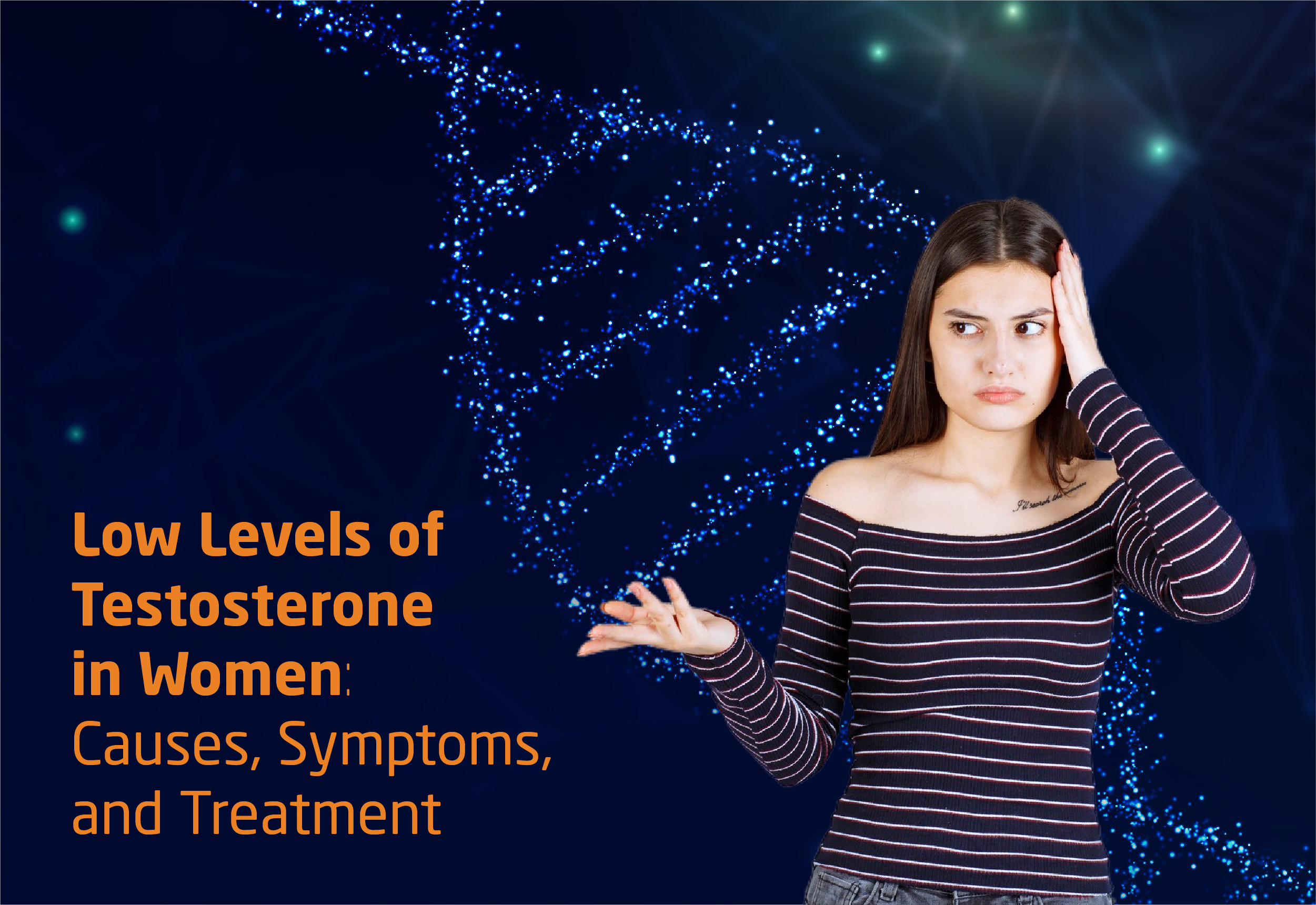Low Levels of Testosterone in Women:
Did you know that testosterone is as important for women as it is for men? It can be surprising, testosterone is crucial for women’s health, affecting everything from muscle mass to mood. Low levels of testosterone in women can manifest as some issues, but on the bright side, it’s manageable.
Let’s further put forth the causes, symptoms, and treatment for this often-overlooked condition.
Must Read: The Vital Role of Psychological Support in the IVF Journey
Testosterone in Women
Contrary to the common belief, testosterone is not only a male hormone. In women, ovaries, adrenal glands, and peripheral tissues produce testosterone. Though required in much smaller amounts compared to men, it is responsible for maintaining bone strength, muscle mass, mood stability, and even sex drive.
Causes of Low Testosterone in Women
Numerous factors can contribute to low testosterone levels in women. Some common causes of low testosterone include:
- Age and menopause: As women age, particularly during and after menopause, testosterone levels naturally decline.
- Adrenal insufficiency: The adrenal glands produce testosterone, and any disruption in their function can lead to a decrease in hormone levels.
- Hypopituitarism: This rare condition affects the pituitary gland’s ability to produce hormones, including those that regulate testosterone.
- Certain medications: Some medications, especially steroids and opioids, can impact hormone levels and lead to lower testosterone.
Symptoms of Low Testosterone in Women
Identifying low testosterone can be tricky since its symptoms can be similar to other conditions.
- Fatigue: Persistent tiredness that doesn’t improve with rest.
- Depression: Mood swings, irritability, or feelings of sadness.
- Low libido: A noticeable decrease in sex drive.
- Muscle weakness: Loss of muscle mass and strength.
- Weight gain: Particularly around the abdomen.
- Thinning hair: Hair loss or thinning on the scalp and body.
How to Treat Low Levels of Testosterone in Females
Treating low testosterone in women requires a comprehensive approach. Here are some effective treatments:
- Hormone replacement therapy (HRT): This treatment involves supplementing testosterone through patches, gels, or injections. It’s crucial to work with a healthcare provider to customize the therapy to suit your individual needs, ensuring the right balance and monitoring for side effects.
- Adopting a healthier lifestyle: Making changes to your diet and exercise routine can significantly impact hormone levels. Focus on a balanced diet rich in proteins, and healthy fats, and low in processed foods. Incorporating regular strength training exercises can also help boost testosterone levels naturally.
- Managing stress: Chronic stress can deplete hormones, including testosterone. Incorporating stress-reducing practices such as yoga, meditation, and mindfulness can be beneficial. These practices help lower cortisol levels, which can positively impact your hormonal balance.
- Medications for underlying conditions: If an underlying condition is causing low testosterone, addressing that condition is essential. Proper treatment of these conditions can help restore hormonal balance. Working with a healthcare provider to manage these issues can lead to significant improvements in your overall well-being.
Low levels of testosterone in women can have a huge impact on quality of life, fortunately, it’s manageable with the right approach. Knowing the causes and symptoms is the first step toward effective treatment. Whether through medical therapies, lifestyle improvements, or alternative treatments, there are many ways to bring balance and improve well-being. If you suspect you have low testosterone, consult with a fertility expert at Ferticity IVF & Fertility Clinics to easily figure out the best path for you.
Addressing your body’s needs is a step towards a happier and balanced life.

